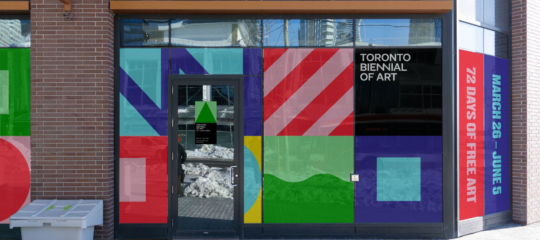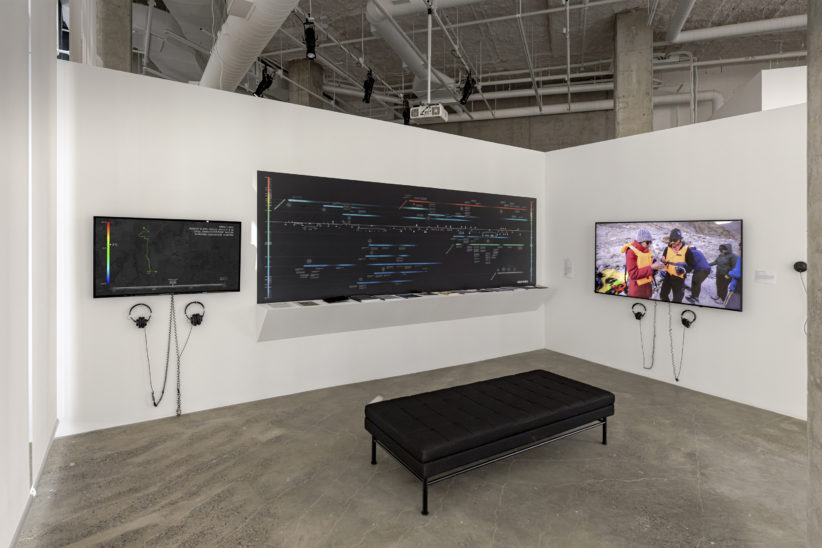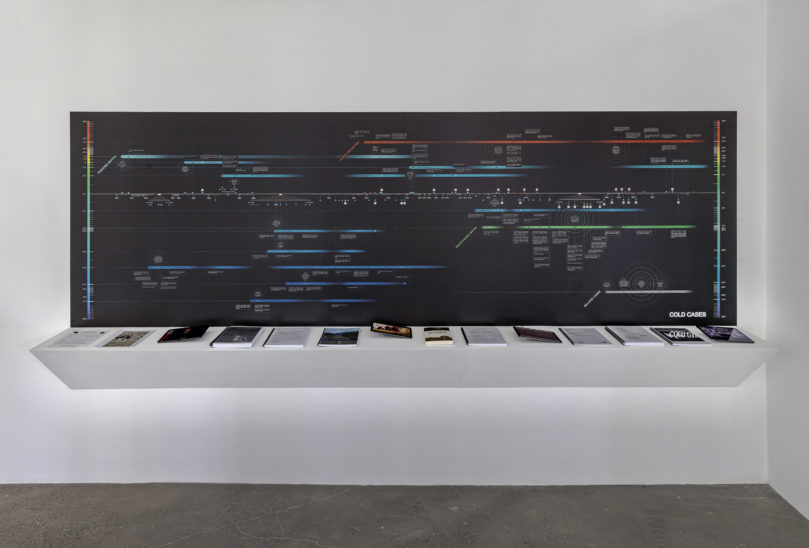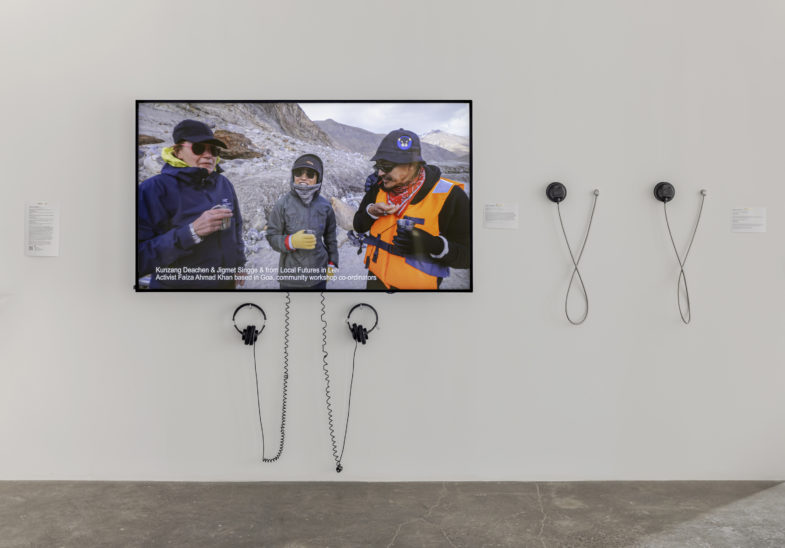Learning from Ice (2019-ongoing) is a multi-year project that investigates how different knowledge practices respond to climate change. In 2019, Susan Schuppli, drawing on her research into ice core science, presented the first iteration of a documentary film that considers how glacial ice acts as a material witness to global warming. From volcanic ash spewed thousands of years ago to the black carbon deposits of industrialization and, more recently, greenhouse gases, glacial ice sheets have been systematically recording evidence of these processes. Footage was shot in circumpolar research centres that focus on ice, including archival documentation, research interviews, laboratory experimentation, and fieldwork. Participating centres include the Canadian Ice Core Archive, Oregon State University Ice Core and Quaternary Geochemistry Lab, Scripps Institution of Oceanography, the University of Alberta, and the University of San Diego.
Since the 2019 Toronto Biennial, in addition to fieldwork and community-based projects in the Himalayas, Svalbard, and Nunavut, Susan has been working on a series, COLD CASES, a collection of videos and related materials and resources that explore the politics of “cold.” Falling within the broader scope of Learning from Ice, this series of cases and contexts traces the differential experiences and effects of temperature are entangled with legal questions and human rights violations but also claims for social and environmental justice. The project, mapping an evolving atlas of historic and contemporary cases, explores the strategic role of temperature and speculates about the emergence of a new thermo-politics defined by the cold.
The word “justice” is an important starting point for this project as it comprises the two key terms—just and ice—that structure its framework ethically and materially. How might we conceive of a “just” notion of activities and actions related to the breaking, thawing, and melting of “ice” or to the ways in which “cold” has been weaponized as a tactical instrument of policing, custody, and detention of Indigenous and migrant bodies? Each of these COLD CASES exposes the degree to which temperature becomes a register of violence, which includes the legacies of climate colonialism, longstanding socio-economic inequalities, and ongoing structural racism. Investigating the politics of cold through three cases, Susan invites viewers to reflect upon the ethical imaginaries implicit in the conjoined term “just-ice” and. By extension, this work explores the experiential valence of temperature as it both interacts with and is instrumentalized by institutions, bodies, materials, and environments.
Commissioned by the Toronto Biennial of Art and MOMENTA Biennale d’Image, and made possible with the generous support of the Graham Foundation for Advanced Studies in the Fine Arts, Office of Contemporary Art Norway, the British Council, Artica Svalbard, the Social Sciences and Humanities Research Council, the Age of Union Alliance, and the Women Leading Initiative.
Bio
Susan Schuppli (lives in London, UK) investigates the politics of the “cold” and explores how knowledge practices from ice-core science and glaciology to intergenerational wisdom and local observations, climate activism to environmental policy and law, engage with the situated material conditions of ice. She draws on her experience as part of the research agency Forensic Architecture in her consideration of various modes of communication, from legal analysis and public advocacy to theoretical reflection and creative exploration.
Exhibition Site
5 Lower Jarvis

5 Lower Jarvis St
Toronto ON
M5E 1Z2



